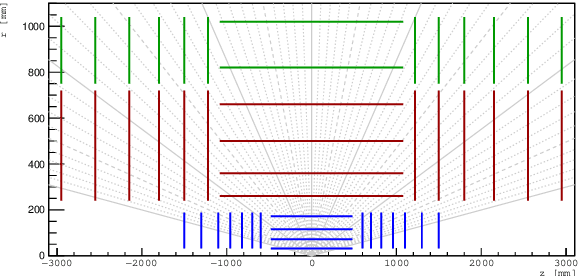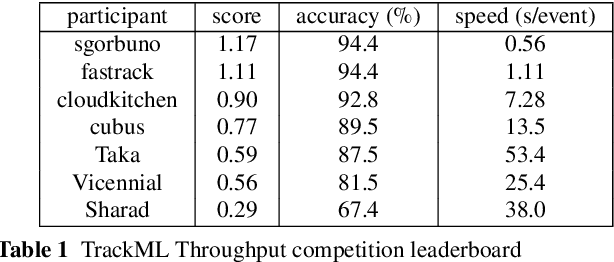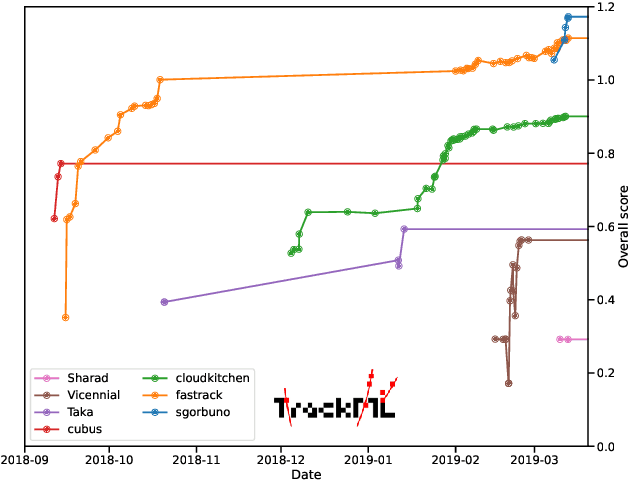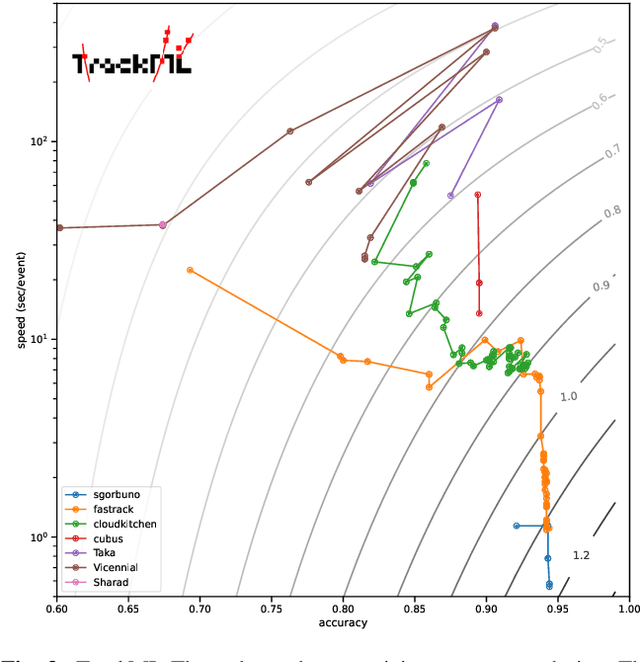Moritz Kiehn
The Tracking Machine Learning challenge : Throughput phase
May 14, 2021



Abstract:This paper reports on the second "Throughput" phase of the Tracking Machine Learning (TrackML) challenge on the Codalab platform. As in the first "Accuracy" phase, the participants had to solve a difficult experimental problem linked to tracking accurately the trajectory of particles as e.g. created at the Large Hadron Collider (LHC): given O($10^5$) points, the participants had to connect them into O($10^4$) individual groups that represent the particle trajectories which are approximated helical. While in the first phase only the accuracy mattered, the goal of this second phase was a compromise between the accuracy and the speed of inference. Both were measured on the Codalab platform where the participants had to upload their software. The best three participants had solutions with good accuracy and speed an order of magnitude faster than the state of the art when the challenge was designed. Although the core algorithms were less diverse than in the first phase, a diversity of techniques have been used and are described in this paper. The performance of the algorithms are analysed in depth and lessons derived.
Hashing and metric learning for charged particle tracking
Jan 16, 2021


Abstract:We propose a novel approach to charged particle tracking at high intensity particle colliders based on Approximate Nearest Neighbors search. With hundreds of thousands of measurements per collision to be reconstructed e.g. at the High Luminosity Large Hadron Collider, the currently employed combinatorial track finding approaches become inadequate. Here, we use hashing techniques to separate measurements into buckets of 20-50 hits and increase their purity using metric learning. Two different approaches are studied to further resolve tracks inside buckets: Local Fisher Discriminant Analysis and Neural Networks for triplet similarity learning. We demonstrate the proposed approach on simulated collisions and show significant speed improvement with bucket tracking efficiency of 96% and a fake rate of 8% on unseen particle events.
 Add to Chrome
Add to Chrome Add to Firefox
Add to Firefox Add to Edge
Add to Edge